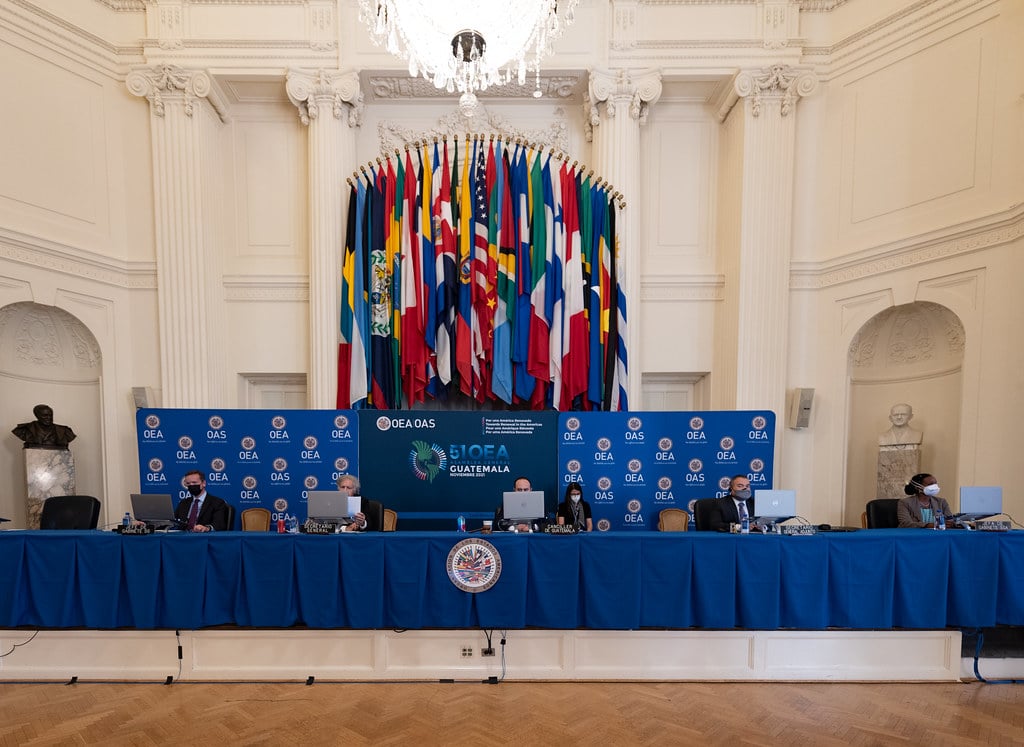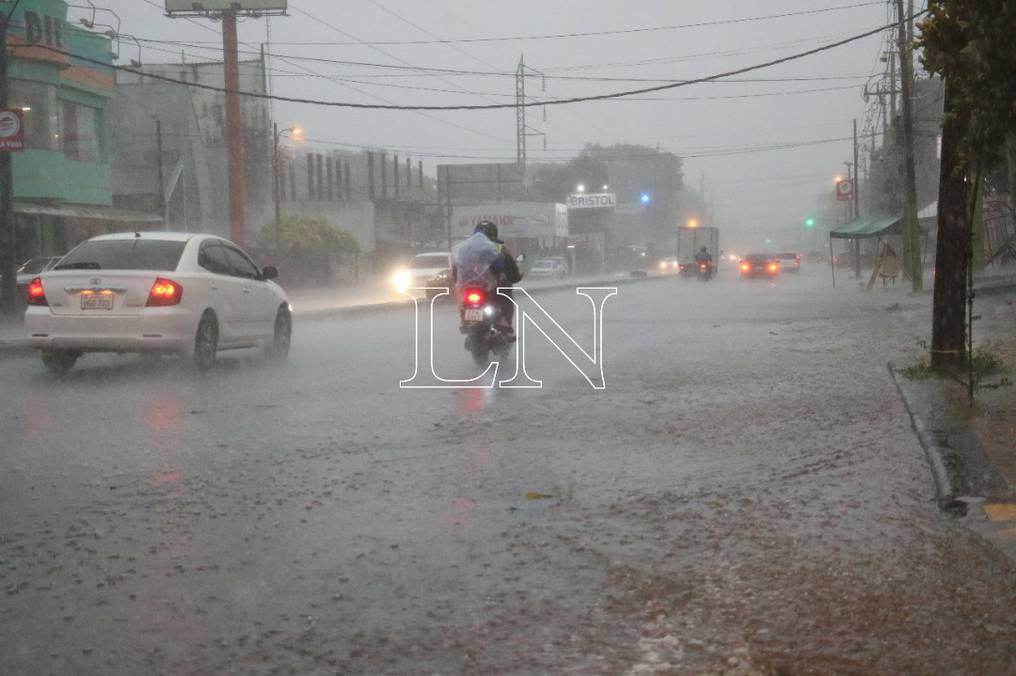The OAS General Assembly of Foreign Ministers will vote on Friday, October 7 a new resolution against the regime by Daniel Ortega and Rosario Murillo. In the text, the States have included, as new topics, repression against the catholic church and the departure of thousands of Nicaraguans, fleeing the harassment of the dictatorship and the dire economic conditions in the country.
From mid-2018 to date, the OAS has approved 14 resolutions on the situation in Nicaragua. Voting has taken place in the two main instances of the regional organization: the General Assembly of foreign ministers (four) and the Permanent Council (ten).
The first resolution of a General Assembly was approved on June 5, 2018 and is the only one that did not require a vote, since it was presented by “consensus”. In it, violence in general was condemned, but there was no direct reference to the responsibility of the National Police for the murder of the hundred citizens that had been counted up to that moment.
In the other three resolutions, the highest instance of the OAS has demanded the release of political prisonersthe entry into Nicaragua of human rights organizations, as well as the formation of a high-level mission to dialogue with the regime.
At the last General Assembly, last November, 25 countries declared voting “without legitimacy” on November 7, 2021, in which Ortega was re-elected for the fourth consecutive time, without political competition and without democratic guarantees.
The new topics: Catholic Church and migration
The OAS foreign ministers will meet in Lima, Peru, from Wednesday to Friday. The delegations Antigua and Barbuda, Canada, Chile, Costa Rica, and the United States, presented a resolution proposal titled: “The political and human rights crisis in Nicaragua”in which they take up some themes of previous declarations and include two new ones: repression against the Catholic Church and the migration of Nicaraguans.
In the draft resolution, the foreign ministers are “deeply concerned” about the “arbitrary detention” of Bishop Rolando José Álvarez and eight other clericsas well as “for the systematic persecution, criminalization, harassment, police persecution and acts of repression that the Government of Nicaragua has perpetrated against members of the Roman Catholic Church, including the arbitrary expulsion of religious congregations.”
Regarding migration, he points out that they are “aware that worsening economic conditions and policies has pushed some 250,000 Nicaraguans to flee the country since 2018.”
The attacks against Catholic leaders were already included in the latest resolution of the OAS Permanent Council, approved on August 12. The document condemned “strongly” the forced closure of NGOs and the harassment against the Catholic Church, and demanded the release of political prisoners.
That resolution had 27 votes in favor; only one against; four abstentions —Mexico, Bolivia, El Salvador and Honduras—; and two absent countries: Colombia and Nicaragua.
In a recent interview with CONFIDENTIALSir Ronald Sanders, ambassador of Antigua and Barbados to the OAS, stressed that, with the new resolution, “we are extending a hand of friendship, once again, to the Ortega government in Nicaragua.”
“We don’t want to be accused of simply close the door in his face“, he claimed.
A summary is reproduced below the points of the new resolution:
- Urge the Government of Nicaragua to cease all violent action against people in the country and fully restore civic and political rights; end judicial, administrative and other intimidation and harassment against journalists, the media and non-governmental organizations.
- Urge the Government of Nicaragua to guarantee the physical, mental, and moral integrity and the right to life of all those who have been arbitrarily detained, and to immediately release all political prisoners.
- Urge the Government of Nicaragua to cease the repression and arbitrary detention of leaders of the Catholic Church and guarantee the right to religious freedom for everyone in the country.
- To call on all States in the region to implement a strategy, based on a comprehensive approach to human rights and with a gender perspective, on the factors that contribute to the displacement of Nicaraguans and their need for protection, including through the granting of asylum and other protection measures.
- Call on the Government of Nicaragua to allow international human rights organizations full and unhindered access to its territory in a spirit of transparency and accountability.
- Request the IACHR to continue monitoring the human rights situation in Nicaragua and provide all assistance to the United Nations Group of Experts on Human Rights on Nicaragua.
- Remind the Government of Nicaragua of the deterioration of the country’s economic and social conditions as a result of its actions, and encourage it to accept offers of regional and international cooperation to restore the nation to the path of democracy and the rule of law. and the peaceful progress of all its citizens.
- To request the Permanent Council to keep itself informed about the political and human rights situation in Nicaragua.
- Invite member states to create a high-level commission with the mandate to offer the Government of Nicaragua the opportunity to discuss all relevant issues.


















